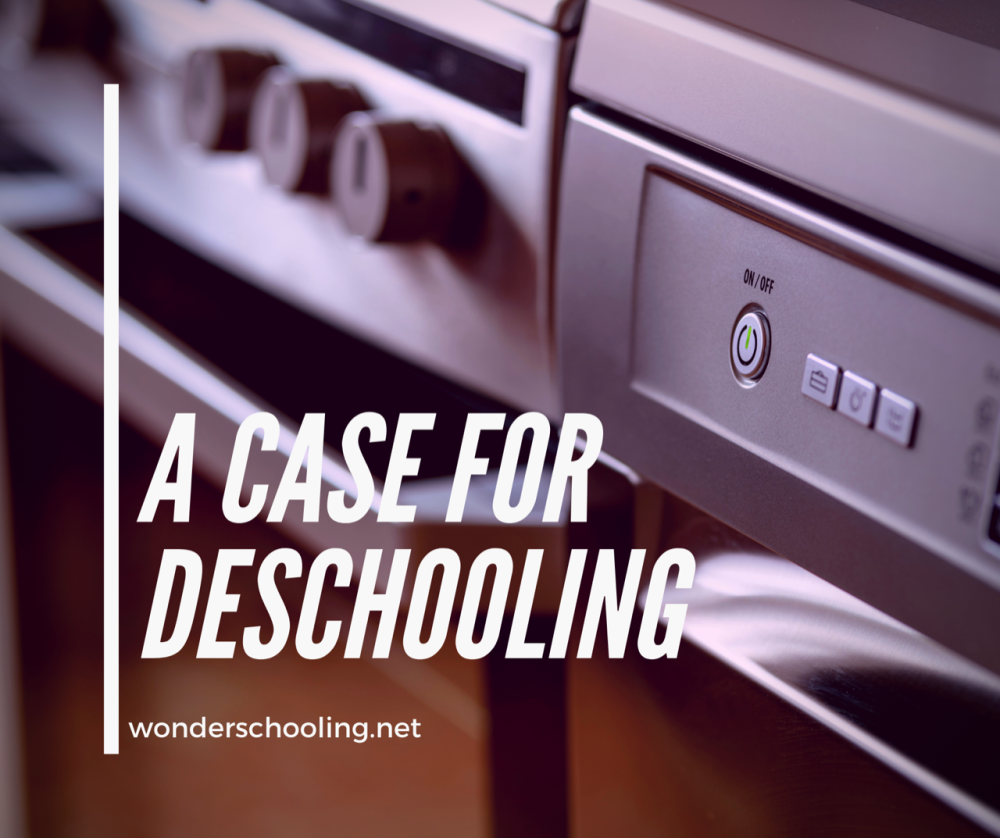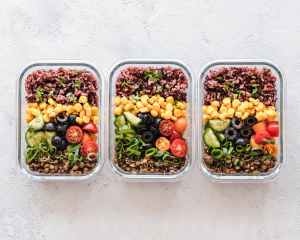Industrial kitchens do what they’re supposed to do very well. They’re models of efficiency, of order, of standardization, and their purpose, to feed large numbers of people quickly and safely, is largely successful.
Imagine with me, if you will, that you have only ever worked in an industrial kitchen. You’re familiar with multi-part sinks, menus, walk-in refrigerators, bulk order deliveries, chafing dishes, warming lamps, conveyor belt dishwashers, and all of the procedures put in place to make that kitchen a success.

For some reason, maybe an allergy or life change, instead of being in an industrial kitchen you are now given your own, private space. Having never functioned in an environment outside of an industrial kitchen, you start to recreate that same atmosphere in your private space: monthly menus, hair nets, stainless steel, and all. You start to order and set up your space so that it feels like a miniature version of what you left, warming lamps, labeling systems, you name it.
Then, one day, a friend comes over, someone who grew up on a farm. She looks at you like you’re crazy. You mean you’re not going out into the garden every day, picking the fresh produce, and working with that? You don’t need any of it — not the menus, not the hair nets, not the labels – just get outside, eat fresh, and local.
You’re confused, but what she’s saying makes sense, so you throw out all the vestiges of industrial kitchen and swing in the opposite direct – you copy your friend’s kitchen. You go out in the fields every day, try to do things her way, but after a few weeks you’re feeling frustrated, confused, and not really feeling like this is working.

Along comes another friend. She’s fun. She’s flexible and free-flowing. She takes every day as it comes and never seems to be stressed. This friend explains her method – she has no plan, no rhyme or reason. She eats whatever she finds or feels like. Some days, it’s cereal, other days she goes to a restaurant, and still other times she wanders through the supermarket until she gets some inspiration. She tells you this is the only way to live.
At this point, you know the farm thing wasn’t for you, and you really don’t feel like pulling out the chafing dishes again, so you consider if she might be right… until your freezer meal friend comes over.

She preps an entire month in a weekend, freezes it all, and uses nothing but a crock pot. She raves and raves about what a lifesaver this is, how amazing it is and how much time it saves. It’s the only way to eat. You have to try it.
What’s she’s saying make sense. But then, another friend tells you about this amazing meal delivery service…. and you’re back to square one.
This is what happens to many new homeschoolers.
After exiting the school, some tend to stay in “school” mode and all the structure and order it affords. Others go from one extreme to the other, whether it’s Charlotte Mason, Wild+Free, Unschooling, or pre-packaged curricula or even online options. Because they don’t know what works for them and their family, they jump into one system or another, and then get frustrated and discouraged when it doesn’t work for them.
That’s where Deschooling comes in.
Deschooling is an exploratory period that allows families to take time to discover who they are, how they learn, what they naturally gravitate towards, and then develop a system and philosophy that works for them.
It’s a chance to breathe, to look again at our kids and what makes them tick, and then choose a path based on our children’s needs, interests, and strengths, as well as who we are and how we best function.
Deschooling takes time. When my oldest came home, the standard advice of one month/year of school wasn’t enough. He had only completed kindergarten and first grade in public school, but it had been such a difficult time, that it took us a good six months until I felt like we could breathe again and had re-established the trust and relationship. Others may not need so long, but it’s important not to rush.
In truth, people skip the deschooling stage because they feel time pressure – like they need to find something ASAP and stick to it. But the best thing you can do for your family is to take a breath, look at
- where you are
- who you are
- what works for you
Until you answer those questions, you may be headed in the wrong direction or putting yourself through a lot of unnecessary stress and frustration.
Other writing on deschooling:
I personally resonate with Bethany Ishee’s perspective on deschooling:
https://bethanyishee.com/category/homeschool/deschooling/
Amy of Rock your Homeschool posts here at the Teach Beside Me blog about her journey:
https://teachbesideme.com/homeschool-methods-deschooling/
and make sure to read these other Hoagies’ Gifted bloggers too about their perspectives.

And then there’s the deschooling which is a barbecue
with rotisseries and such and lots of plates and bowls with portions.
LikeLike
🙂 love it!
LikeLiked by 1 person
Love this article! Thank you. I am in the process of deschooling as I unschool my son. It is a beautiful journey of discovery.
LikeLike
Welcome! So glad you’re finding beauty along the way!
LikeLike